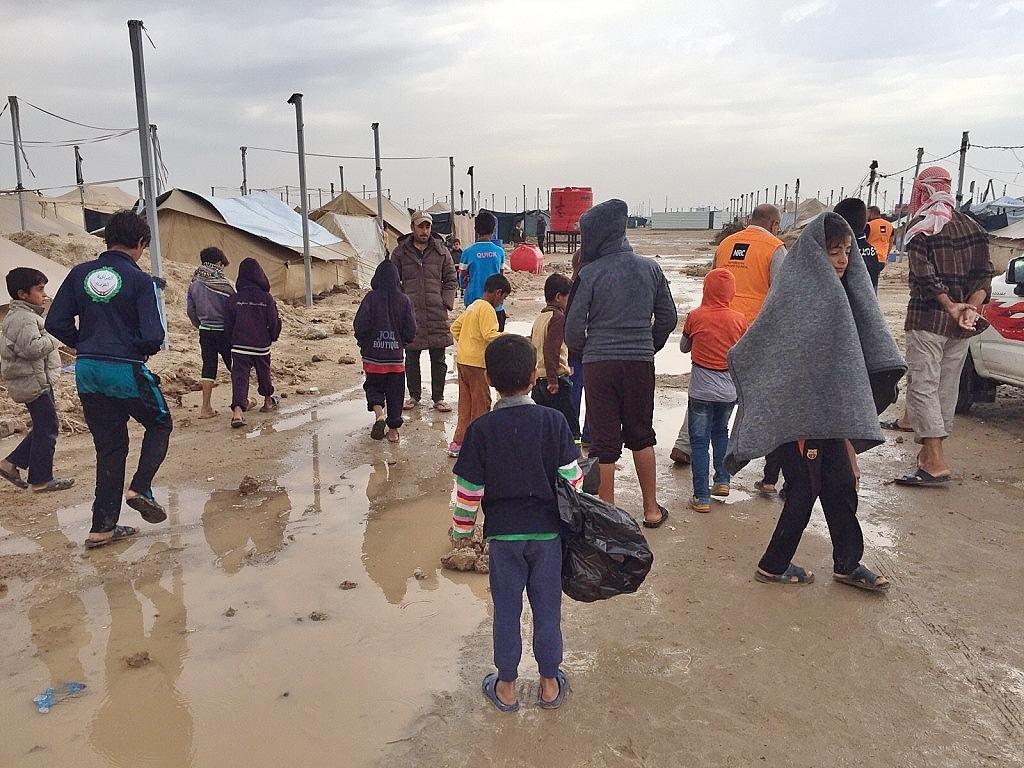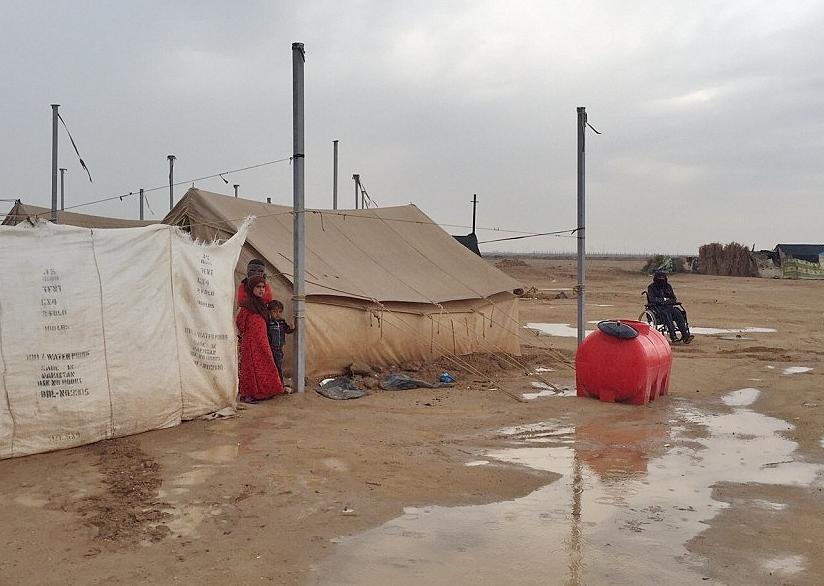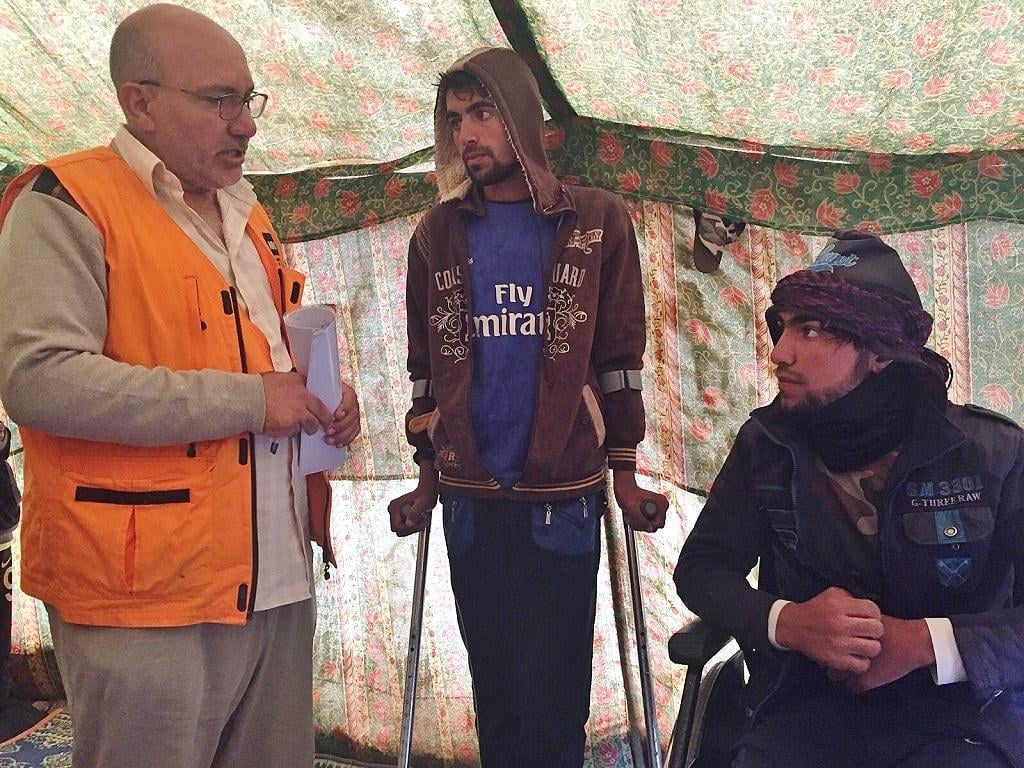.jpg?width=768&height=384&focalPoints=MTIyNyw4NjE%3D)
“One woman died in the Amiriyat al Fallujah camp for displaced people west of Baghdad due to electric shock during the storm. Our people on the ground told us that the camp residents had to leave everything behind during the emergency evacuation”, NRC´s Programme Manager Salah Noori says from Baghdad.
Evacuated Families
Approximately 2098 internally displaced families were evacuated last week when their tents flooded from six camps in Baghdad and Anbar where NRC is usually present providing water, sanitation and hygiene assistance. The families were taken to alternative shelters such as mosques, schools and other government buildings. The vast majority of the evacuated people have now returned back to their camps, but many are still in urgent need of aid.

Thousands of displaced Iraqis were evacuated from their tents due to the heavy rain and floods last week. Photo: NRC/Arkan Mahir
“The situation for the returned internally displaced families is desperate and they need food, water, mattresses and blankets. Our teams have managed to distribute 2000 food parcels, warm blankets and mattresses and we continue to distribute emergency kits to the returned families”, says Noori.
Weather forecasts predict heavier storms and continued rain in addition to falling temperatures across the country in the coming days.

Roads and tent were flooded inside the Ankor Camp in Amiriyat Al-Falluja during last weeks heavy rain. Photo: NRC/Arkan Mahir
“We are currently working on prepositioning winter kits with beddings and kerosene heaters in order to meet the winter needs of the displaced Iraqis”, says Noori.

NRC has distributed food parcels, warm blankets and mattresses to the people affected by the flood. NRC's Field Assistant Mohammed Salih is visiting a displaced family affected by the flood in Ankor Camp. Photo: NRC/Arkan Mahir
Desperate Situation
The severe weather conditions further compounds the already desperate situation for over 3.2 million internally displaced Iraqis. The current humanitarian crisis, which has left over 8.2 million people in need of humanitarian aid since January 2014, is characterised by access constraints, partly due to large parts of the country being held by armed opposition groups. This renders it more difficult for aid agencies to coordinate access to reach civilians in need.




.jpg?width=768&height=384)